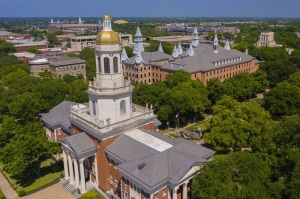'God Particle' Theorists Awarded Nobel Prize in Physics
Theoretical physicists Peter Higgs and François Englert have been awarded the Nobel Prize in Physics for their theory involving the Higgs boson, also known as the "God particle."
"The awarded theory is a central part of the Standard Model of particle physics that describes how the world is constructed," the Royal Swedish Academy of Sciences said in a press release.
Englert and his now-deceased colleague, Robert Brout, proposed the theory of what is now known as the Brout-Englert-Higgs (BEH) mechanism in 1964 independent of Higgs, who also proposed the theory that same year.
"I am overwhelmed to receive this award and thank the Royal Swedish Academy," Higgs said in a University of Edinburgh press release. "I would also like to congratulate all those who have contributed to the discovery of this new particle and to thank my family, friends and colleagues for their support. I hope this recognition of fundamental science will help raise awareness of the value of blue-sky research."
Englert said during a press conference after learning he had received the award that he is "very happy."
The Standard Model describes how visible matter particles that make up everything from planets to people interact. The entire model depends on the existence of Higgs boson particles, which enable other particles to acquire mass.
The theory was confirmed in 2012 when scientists at CERN, the European Organization for Nuclear Research, discovered evidence of the Higgs boson through experiments using the Large Hadron Collider.
"I'm thrilled that this year's Nobel Prize has gone to particle physics," CERN Director-General Rolf Heuer said in a statement. "The discovery of the Higgs boson at CERN last year, which validates the Brout-Englert-Higgs mechanism, marks the culmination of decades of intellectual effort by many people around the world."
The BEH mechanism was the last part of the Standard Model that had to be verified through experimentation, CERN reports. Now that the Higgs boson has been discovered, CERN scientists are turning their attention to other mysteries, such as where the "dark" matter that makes up four-fifths of the matter universe can be found.
Higgs was born in 1929 in Newcastle upon Tyne, United Kingdom, and is professor emeritus at the University of Edinburgh. Englert was born in Etterbeek, Belgium, in 1932, and is professor emeritus at Université Libre de Bruxelles in Brussels.
As co-winners of the prize, the physicists will split 8 million krona ($1.25 million).
A total of 107 Nobel Prizes in Physics have been awarded since the prize was first given in 1901. Only one person, John Bardeen, has received the award twice.
The Nobel Assembly at Karolinksa Institutet announced Monday that the 2013 Nobel Prize in Physiology or Medicine went to James E. Rothman, Randy W. Schekman and Thomas C. Sudhof "for their discoveries of machinery regulating vesicle traffic, a major transport system in our cells."
Announcements for the 2013 Nobel Prizes in chemistry, literature and peace will come later this week. The prize for economic sciences will be announced Monday, Oct. 14.



























